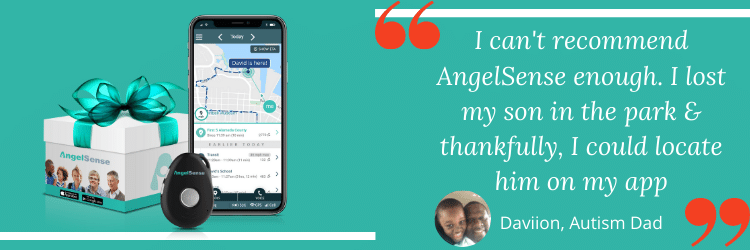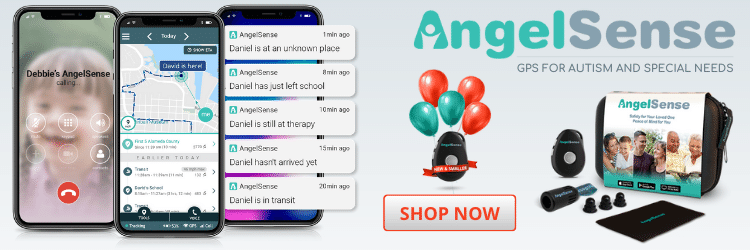5 Things You Can Do to Improve Your Child with Autism’s Concentration
Updated on October 27, 2021Have you ever stopped to consider how your child experiences the world? For children with autism it’s almost as if everything is filtered through a unique lens which heightens even the faintest sounds, smells and tastes. This inundates an autistic child with so much excess data to process and make sense of that they’re often left feeling overwhelmed. For many children with autism, this can make something as simple as concentrating seem like an impossible task.

The autistic brain is truly fascinating. While overwhelm and sensory overload often lead to a lack of focus, there are times when those with autism will be hyperfocused. This is often when something piques a person with autism’s interest and could include things like moving parts of cars, trains, or even a book. One person with autism described how when reading a good book she can become so engrossed she’ll lose track of everything: “When I love a book I read and read and then all of a sudden it’s 4:45am and I have no more book left. Or 8am. Or two days later.”
Why do children with autism struggle with focus?
What’s interesting and unique about how children with autism focus is that they have an inability to evaluate what’s important and needs to be focused on. Some studies which looked at the brain activity of those with autism suggest that when presented with two tasks and told to focus on one of them, most people with autism can’t shift their attention or focus. This is because an inability to understand which task is more important.
Another study which explored why children with autism struggle to concentrate, explained that this inability stems not only from a developmental delay, but also whether or not a child is interested enough to focus. This suggests that rather than an impairment, a lack of focus is actually a choice. So it seems all you have to do is give your child something that interests them and you’ll have their undivided, hyperfocused attention. If only it was that simple!
What can you do to improve your child’s concentration?
The reality is that your autistic child won’t be interested in everything, and can’t change that. What you do is work on honing your child’s ability to concentrate. To help you get started, we’ve put together some practical tips that you can start implementing today.
1. Teach your child to make eye contact
Learning to make eye contact is an important skill, and something that may help your child pay attention to what’s outside their realm of interest. Keep in mind that this may take some time. Be patient and break the process down into fun, game-like steps that your child can enjoy.
How to get started:
- Call your child’s name and place a favorite toy within their line of sight
- Gradually move the toy towards your eyes
- Your child will eventually have to look you in the eyes to look at the object
- With enough practice, your child will begin to look you in the eyes when you call their name
2. Engage your child in activities of interest
Playing with your child is an effective and rewarding way to develop your child’s ability to focus. It’s important to only choose activities that your child enjoys and finds interesting. Ideally this should be an activity that involves other people so your child gets to interact and focus on something.
How to get started:
- Pick a fun and interactive activity your child enjoys
- This could be something like a ball game
- Spend time playing or engaging in this activity with your child
- The right activity will help your child focus on nonverbal cues (tone, body language)
3. Make close-ended activities a priority
Because you’re trying to develop your child’s ability to concentrate, you should engage your child in short activities with a definite goal on a daily basis. This will help keep your child motivated, and will prevent your child from losing interest in the activity.

How to get started:
- Pick a close-ended activity like threading beads on a necklace
- Once your child has mastered a simple close-ended activity, increase the difficulty
- Be sure to praise your child as soon as they complete the task
- If your child really struggles with focus, you can get an egg timer so your child can see how long they have to focus for
4. Repeat what your child says and does
A good way to make your child more aware of their actions and to help them focus on an interaction is to repeat what they say and do. This should not only attract your child’s attention, but may make your child curious to see what you do next. The idea is that this should turn into a game where you both take turns imitating each other.
How to get started:
- Copy your child’s actions like facial expressions, body language, gestures and language
- Once you’ve got your child’s attention and they’re expecting you to imitate them, change things up by doing your own actions
- Encourage your child to copy you
5. Praise your child for paying attention
When you notice your child concentrating, be sure to reward them. The important thing is not just to praise the behavior, but to be as specific as possible. You want your child to know you’re proud because of something in particular that they did. Instead of saying something like: Great job! I can see how you concentrated. It would be better to say something like: Great job for focusing on me when I said your name!
How to get started:
- Pay close attention to your child’s behavior
- Praise your child when you see them focusing on something
- Make sure your feedback is positive, easy to understand and specific
Many children with autism struggle to concentrate on things that don’t interest them. While this isn’t an easy skill to master, with enough practice you should be able to improve your autistic child’s ability to focus. What tips do you have for improve a child with autism’s ability to concentrate? Share your suggestions in the comments below.
Get peace of mind from AngelSense, the groundbreaking AI-based assistive technology designed to enhance safety and peace of mind for individuals with special needs and their families. Our solution ensures you stay connected with your loved ones, empowering a higher level of independence while maintaining safety. Learn more about how AngelSense can make a difference for your family.



Regarding number 1 – NO. If your autistic child does not make eye contact, DO NOT FORCE THEM TO!
In fact, forcing eye contact with autistics can result in a serious lack of ability to concentrate on anything. There are two main reasons I’ve heard for why my fellow autistics don’t make eye contact. One is that meeting someone’s eyes feels like a threat (in much the same way dogs and cats can feel like it’s a threat); my best friend falls into this category. The second is that there’s something very overwhelming, sensory-wise, about meeting someone’s eyes. Either way, it can absolutely destroy an autistic’s ability to concentrate. I happen to be in the minority in that I don’t tend to have difficulty with eye contact, but put me in a situation where I have to absorb what I’m listening to, or concentrate on it to analyze it, and I have to close my eyes in order to focus.
So no. Stop trying to force eye contact. It does absolutely nothing to help your autistic child, and in fact makes everything a great deal more difficult for them.
The autistic who described how she will get lost in a favourite book.
[…] and provide them with positive emotional support. Check out some of these tips on how you can help your child concentrate in school, excel at their tests, and ultimately land that perfect […]
Eye contact for some autistic people is completely overwhelming, please don’t force eye contact. If you HAVE to, ask them to look at your ear or your nose, or just toward your face when you’re speaking to them, but emphasize why. Tell them that it helps you understand that they’re paying attention. Forcing eye contact for me is a guaranteed way to shut me down. The eye contact is the ONLY thing I can pay attention to and whatever it was that was so important is completely lost. You have to pay attention to YOUR child and YOUR CHILD’S needs. DO NOT FORCE EYE CONTACT.
Hi, I am an EA at a middle school and I am working with two autistic kids. one of them has a good ability to memorizing the names and languages, but he has a big problem with concentrating on task.he can read but just very simple words and most with memorizing the Also he has a very low motor skill as well.
I love to help him in this regard but really hard to find out the works to mach his ability. I am looking for any advise that help me.
thanks in advance
Hi, just letting you know that teaching ‘eye contact’ can be harmful for autistic children. And also, the autistic community prefers ‘autisticsperson’, rather than ‘person with autism’.
I agree with Trudy Goold here – you should NEVER ever force a child with autism to make eye contact. Trust me (as an autistic human) it does a lot more harm than good. Firstly I cannot (and most other autistics feel the same or similarly) concentrate at all when making eye contact. Secondly, many autistics actually find it painful to make eye contact, it you ‘teach’ them to make eye contact, all you’re actually teaching them to do is to keep that pain bottled up, which is a horrific thing to do. Finally, making eye contact is exhausting for many autistics (me included!) it takes so much effort and energy (I recommend you look into spoon theory to fully understand this) that it leaves little energy for more important, nice things. Thanks for reading!
Try AngelSense Risk Free
Session Changed
Your session has changed. Please close this tab.